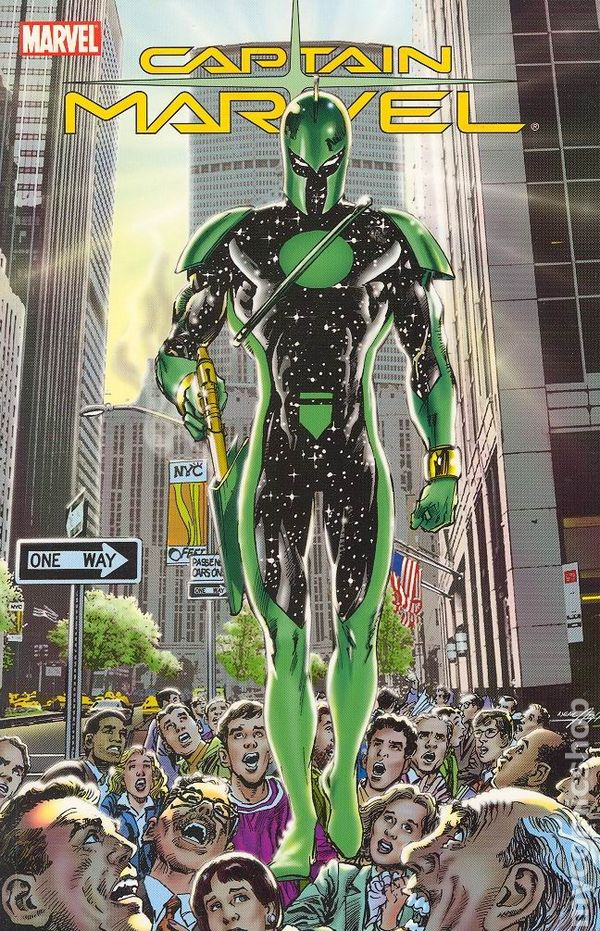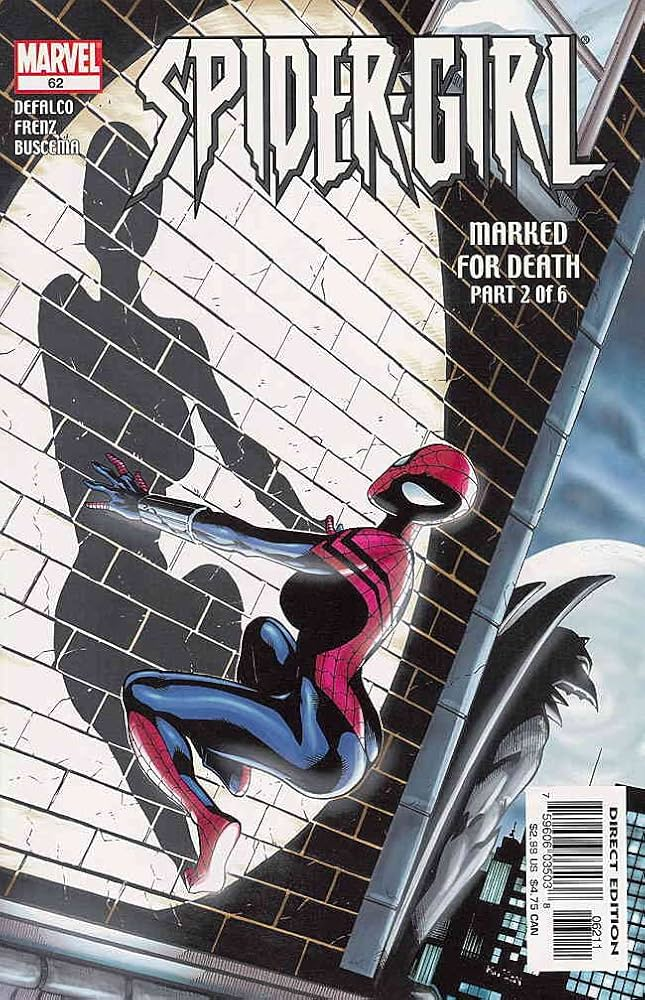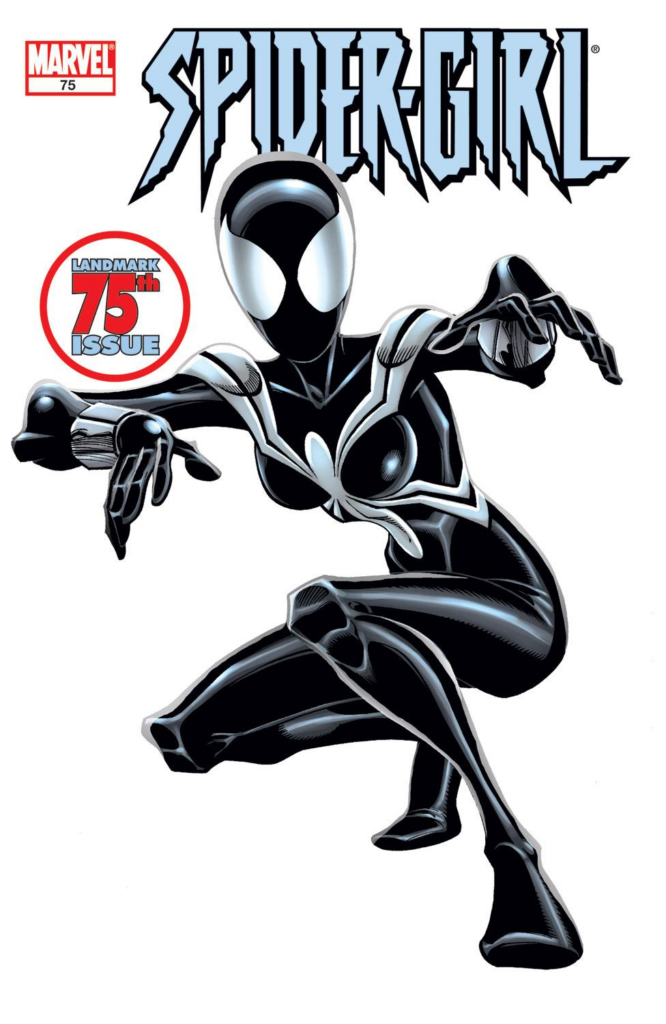
In 2002, I was hired into the office of Tom Brevoort, then senior editor and now Vice President of Publishing. I worked directly for Tom from 2002 until I left his office in 2005. And those were certainly my most formative years in comics. I can’t begin to list all of the useful and life-altering things I learned from Tom in a single post. In fact, I could probably make everything I learned from him an ongoing column week after week.
But I’ll give you one tip he gave me that changed the way I approached editing comics at the time (and still to this day). There came a day when Bill Jemas, then President of Publishing at Marvel, decided that all assistant editors would have at least two comics to edit personally. He wanted us youngsters to have first hand experience and skin in the game on the titles. At least, that’s what I think his reasoning was for this. His decree came down after I’d been at Marvel only about six months and…. I was NOT ready.
At least, in some ways, I wasn’t ready. I was enthusiastic and welcomed the opportunity and challenge, but Tom was, I believe rightfully so, suspect that I was going to be a good editor at the time. I was green and still making rookie mistakes. So he told me, and I appreciate this, that he would be watching carefully and advising, but that the two books would be mine to edit.
And he did exactly that. When I was about to walk off a cliff or blow a book up, I could feel his hand on my shoulder pulling me back from the cliff edge, or taking the detonator out of my hand. The decisions were mine, but he helped tremendously.
My two books were Captain Marvel, then written by Peter David with ChrisCross and Chris Sotomayor (who you’ll hear more about in my next blog) on art and Spider-Girl written by Tom DeFalco and illustrated by Ron Frenz after Pat Olliffe’s long run on the book. As it turned out, I was already loving the Captain Marvel book and didn’t want to make a ton of changes, though I knew we were going to need a new artist soon. But Spider-Girl wasn’t really a book for my tastes.

And that was my first rookie mistake–thinking my own tastes mattered. In some ways, they do, but in other ways, they really don’t. I started making plans for all the things I wanted to change about Spider-Girl the comic to make it more a book I would like. I liked heavy thrillers and darker books, and that’s what I wanted to turn Spider-Girl into.
I remember telling Tom about a bunch of ideas I wanted to explore and him listening calmly and letting me finish before… he torpedoed them all!
I really didn’t understand why at first, but he said to me, “Andy, your job isn’t to make books for you. Your job is to make the best Spider-Girl comic that you can.” He went on to explain that Spider-Girl wasn’t designed for me. It already had its audience and they were loyal and came back month after month. I didn’t have to like it. I was making a book for them–for Spider-Girl fans. He rightly pointed out that Marvel already had a “darker” line of comics called Marvel Knights. Those fans had their books.
I see it now as rule #1: Make the best book based on its design and for its audience that you can. This opened me up to become, I believe, a much better editor than I would have been had I been left to my own devices. And I think had Tom not stepped in and talked me down, Spider-Girl would have met with a much earlier cancellation than it did. I’m occasionally credited with saving the book from cancellation by introducing the Venom costume in the book with issue #75, but that wouldn’t have happened had Tom not stepped in and told me to make the best Spider-Girl comic that I possibly could.

The sales bump on that issue, which was intended to be the final issue of the series, led to it’s approval up through issue #100. But here’s the thing, while the sales boost got the approval, if we had made the kinds of changes I was suggesting, we likely would have lost that loyal audience, and most likely would NOT have gained a new one. And the book would have died well before issue #100.
When approaching comics to this day, many many years later, this is still a Prime Directive for me when approaching any comic–heck, I even use it when approaching a comic as a reader.
I’m so grateful for Tom and his many lessons to me while I was usually irritating him. But Tom is also far from the only mentor I’ve had in comics. I needed all of them to help me become the professional that I am today. We all have mentors and we all need them. Tom was just one of mine. Looking back now, I wish I’d asked him who his were….
If you’re looking to level up, Comics Experience has a mentorship program for that one-on-one learning and growing. If interested in learning more about it and what it costs, check it out here.
And that’s my two staples worth….
I need to broaden my horizons. As a writer, I tent to get tunnel vision and simply see mentorship as the pathway to completing a winning script. What are the other elements of mentorship that I should be taking advantage of?